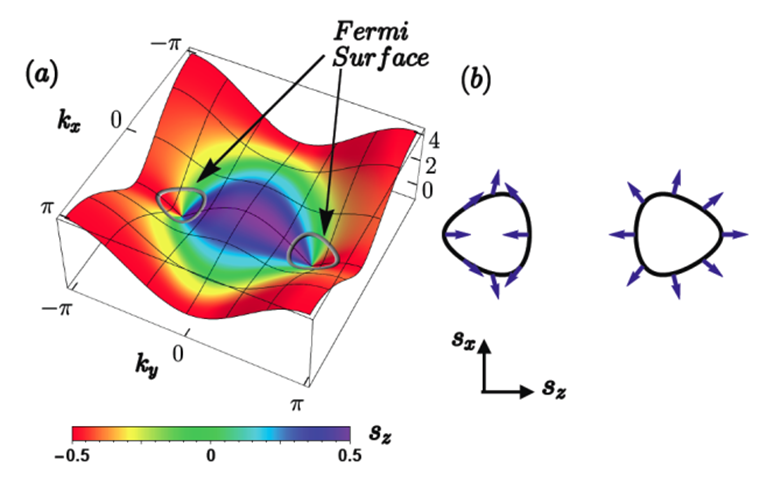Researchers make breakthrough in magnetic geometry-induced quantum geometry and nonlinear transport
2025-06-06SUSTech hosts IOP Forum with President of Institute of Physics Sir Keith Burnett
2025-03-26Researchers discover unusual thermal conductivity in high-symmetry single crystals
2025-03-26New efficient method detects quantum temporal correlations
2025-03-26Researchers explore unconventional magnons predicted by spin space groups
2025-03-25In a recent paper published Phys. Rev. Lett. (PRL 119, 047001 (2017)), Prof. Xiong-Jun Liu and his team from Institute for Quantum Science and Engineering SUSTech developed a generic theory for non-Abelian Majorana zero modes in 2D superconductors and superfluids. They showed that the Majorana zero modes can be generically obtained in a superconductor/superfluid with topologically trivial or nontrivial bulk, and further proposed a minimal experimental scheme for the realization of Majorana zero modes.
It is well known that non-Abelian Majorana zero modes are located at vortex cores in a chiral topological superconductor, which can be realized in a 2D spin-orbit coupled system with a single Fermi surface and by proximity coupling to an s-wave superconductor. In particular, the experimental proposals for realizing Majorana zero modes have been largely built on the realization of topological superconductors. However, Majorana zero modes in superconductors are topological defect modes, which correspond to nonlocal extrinsic deformations in the Hamiltonian of the topological system. For example, Majorana zero modes in the chiral px+ipy superconductor are located at vortices that exhibit nonlocal phase windings of the superconductor order (a global deformation in the original uniform Hamiltonian). This feature tells us that the Majorana zero modes at vortices are not intrinsic topological excitations, but extrinsic modes of a superconductor. In this regard, one may conjecture that the existence of MZMs does not uniquely correspond to the bulk topology of a superconductor, and there might be much broader range of experimental systems that can host such exotic modes, besides those based on topologically nontrivial superconductors.
Motivated by the above consideration, Dr. Cheung Chan, PhD student Lin Zhang etal. in Prof. Xiong-Jun Liu’s group show that the existence of non-Abelian Majorana zero modes is unrelated to the bulk topology of a 2D superconductor, and propose that such exotic modes can result in a much broader range of superconductors, being topological or trivial. For a generic 2D system with multiple Fermi surfaces that is gapped out by superconducting pairings, they show that at least a single Majorana zero mode survives if there are only an odd number of Fermi surfaces of which the corresponding superconducting orders have vortices; such a Majorana zero mode is protected by an emergent Chern-Simons invariant, irrespective of the bulk topology of the superconductor. This result enriches new experimental schemes for realizing non-Abelian Majorana zero modes. In particular, they propose a minimal scheme to realize the Majorana zero modes in a 2D superconducting Dirac semimetal with trivial bulk topology, which can be well achieved based on recent cold-atom experiment performed by Xiong-Jun Liu’s group collaborating with a USTC team (Science 354, 83-88 (2016)).
The work is supported by MOST and NNSFC.
Source Link: https://doi.org/10.1103/PhysRevLett.119.047001

Figure 1: Non-Abelian Majorana zero modes obtained in 2D superconductor/suerpfluid with a trivial bulk.